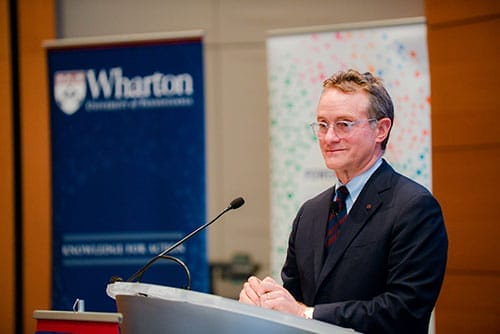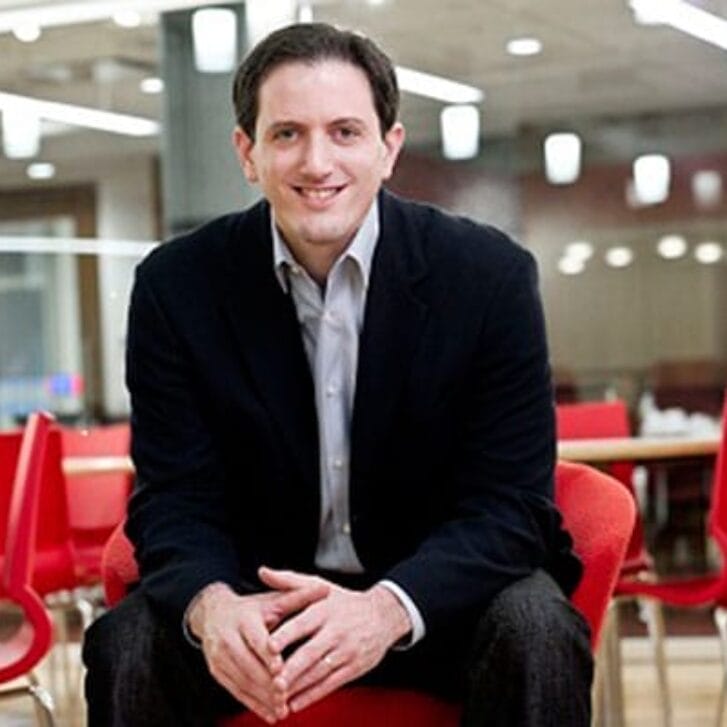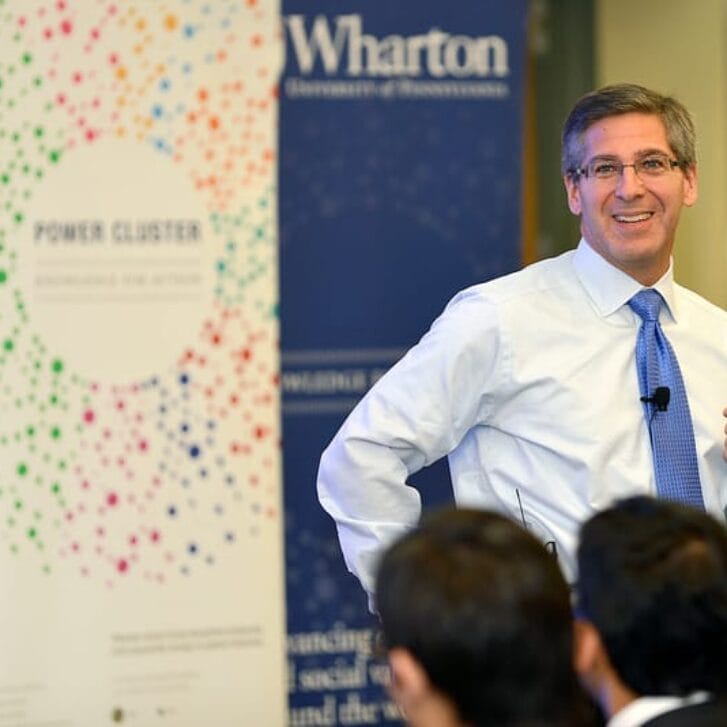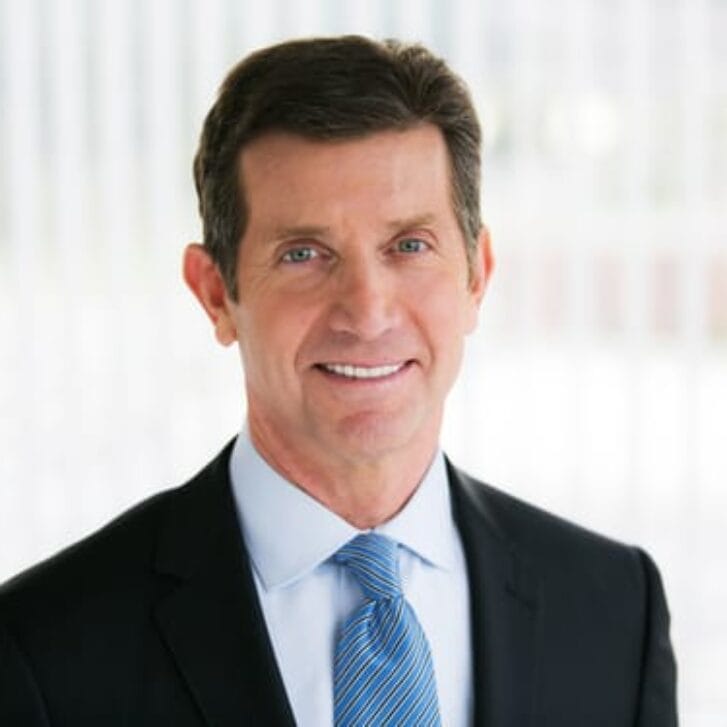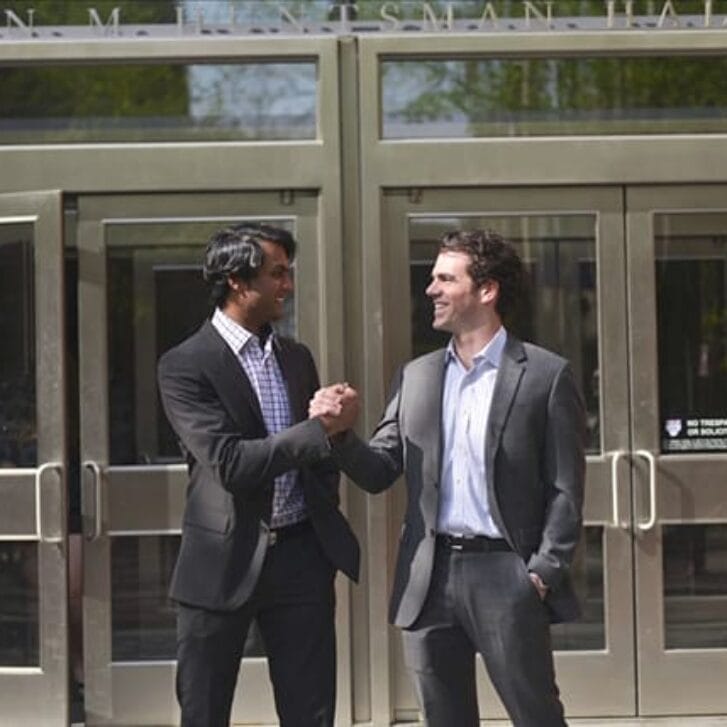The inaugural lecture of the Howard Marks Investor Series occurred last month, and it was only fitting that the man himself, Howard Marks, W’67, was giving the talk. It could be said he was due the honor simply for endowing what promises to be a superstar event on campus. Once a year, the lecture series will serve to bring to campus a world-class figure in the investment space, to facilitate dialogue directly with students.
It could also be said that Marks was due the spot because as co-founder of private equity’s Oaktree Capital Management, he is such a world-class figure.
His talk was less a lecture than a fireside chat (no fire included in Huntsman Hall of course)—ranging over topics like his career, his investment philosophy, leadership styles and risk.
Some (but by no means all) of Marks’ most intriguing sound bites include:
“Success in investing is not a function of what you buy. It’s a function of what you pay.”
This sums up Marks approach to value investing, which he developed by watching mainstream investors pile into “nifty 50” stocks in the 1960s and early 1970s—the shiniest, fastest growing corporations that, by the 1973-74 global stock market crash, had led investors to lose 90 percent of their money.
“It’s not a crapshoot. It’s not, pardon the expression, ‘venture capital.’”
Again, with his and Oaktree’s focus on value, even high-yield bonds and distressed debt can be reliable investments if done right.
According to a 2013 Barron’s profile of Marks, funds based on Oaktree’s distressed-debt investing strategy averaged 17.5 percent per year, after fees and profit-taking over the past quarter-century.
“Loss is what happens when risk is tested.”
One of the most rewarding aspects of Oaktree’s success, said Marks, is its consistency in returns and control over risk. Anyone can succeed in the markets during bull runs, but who was successful during the Great Recession? Investors who built portfolios to withstand such shocks came out on top. But you never know until those shocks happen.
“The crisis of ’08 … was a test of a lifetime for me. … All you needed to do was have money and nerve.”
Oaktree’s strategy during the crisis was to stockpile money and then invest billions when the market hit bottom.
“It’s great to be successful but it’s even better to do it with integrity.”
Part of Marks’ “high road” approach to success is to take care of his employees. As many as one-quarter of Oaktree employees own equity, he estimated.
Yet he stressed to the Wharton audience that a leader and his or her company must inspire employees, clients and shareholders, and show that the organization stands for something other than money.




















